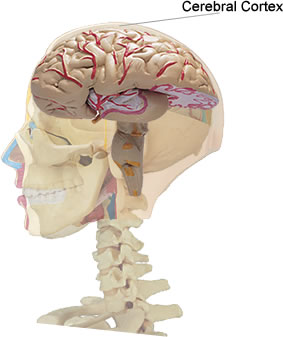
Back مهارة تحليلية Arabic Analytické myšlení Czech مهارتهای تحلیلی Persian Logisk-analytisk förmåga Swedish Kỹ năng phân tích Vietnamese
This article contains too many or overly lengthy quotations. (August 2021) |

Analytical skill is the ability to deconstruct information into smaller categories in order to draw conclusions.[1] Analytical skill consists of categories that include logical reasoning, critical thinking, communication, research, data analysis and creativity. Analytical skill is taught in contemporary education with the intention of fostering the appropriate practices for future professions.[2] The professions that adopt analytical skill include educational institutions, public institutions, community organisations and industry.[3]
Richards J. Heuer Jr. explained that
Thinking analytically is a skill like carpentry or driving a car. It can be taught, it can be learned, and it can improve with practice. But like many other skills, such as riding a bike, it is not learned by sitting in a classroom and being told how to do it. Analysts learn by doing.[4]
In the article by Freed,[5] the need for programs within the educational system to help students develop these skills is demonstrated.[2] Workers "will need more than elementary basic skills to maintain the standard of living of their parents. They will have to think for a living, analyse problems and solutions, and work cooperatively in teams".[6][5][7]
- ^ Sasmitatias, Frastika; Kuswanto, Heru (2018-07-06). "The Development of Science Learning Device Based on Serukam Local Culture To Improve Students' Analytical Skill". International Journal of Educational Research Review. 3 (3): 59–68. doi:10.24331/ijere.441348. ISSN 2458-9322.
- ^ a b Freed, Craig; Pena, Robert (2000). "Minority Education and Analytical Thinking Skills: Traditionalizing Disempowerment". The High School Journal. 85 (2): 24–32. doi:10.1353/hsj.2001.0022. ISSN 1534-5157. S2CID 144334245.
- ^ Persaud, Ajax (2020-02-28). "Key competencies for big data analytics professions: a multimethod study". Information Technology & People. 34 (1): 178–203. doi:10.1108/ITP-06-2019-0290. hdl:10393/40272. ISSN 0959-3845. S2CID 216379615.
- ^ Heuer, Richards (1999). Psychology of intelligence analysis. Washington, D.C: Center for the Study of Intelligence, Central Intelligence Agency. ISBN 1-929667-00-0. OCLC 53813306.
- ^ a b Freed, Craig; Pena, Robert (2000). "Minority Education and Analytical Thinking Skills: Traditionalizing Disempowerment". The High School Journal. 85 (2): 24–32. doi:10.1353/hsj.2001.0022. S2CID 144334245.
- ^ Canhoto, Ana Isabel; Clark, Moira; Fennemore, Paul (August 2013). "Emerging segmentation practices in the age of the social customer". Journal of Strategic Marketing. 21 (5): 413–428. doi:10.1080/0965254X.2013.801609. S2CID 167920162.
- ^ Tang, Rong; Sae-Lim, Watinee (28 July 2016). "Data science programs in U.S. higher education: An exploratory content analysis of program description, curriculum structure, and course focus". Education for Information. 32 (3): 269–290. doi:10.3233/EFI-160977.